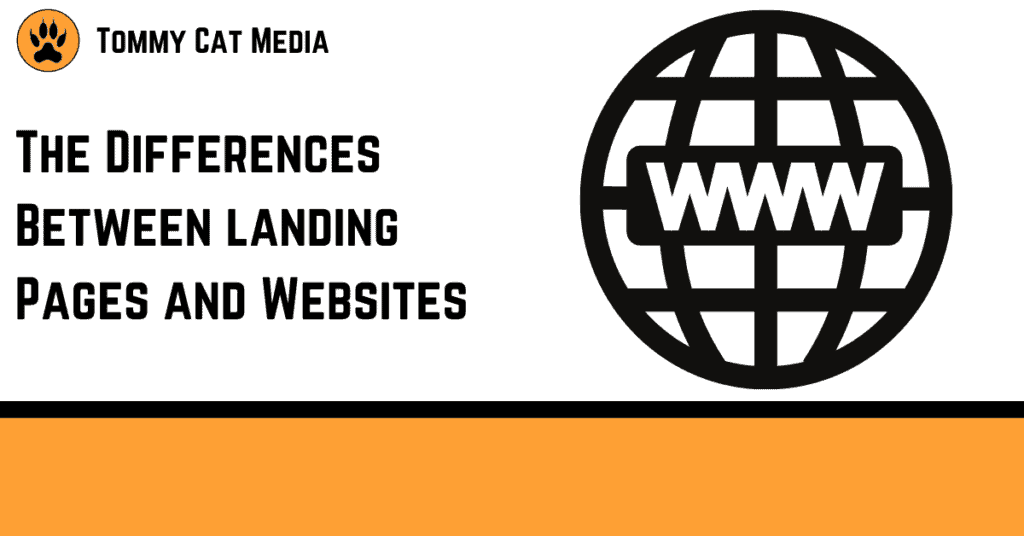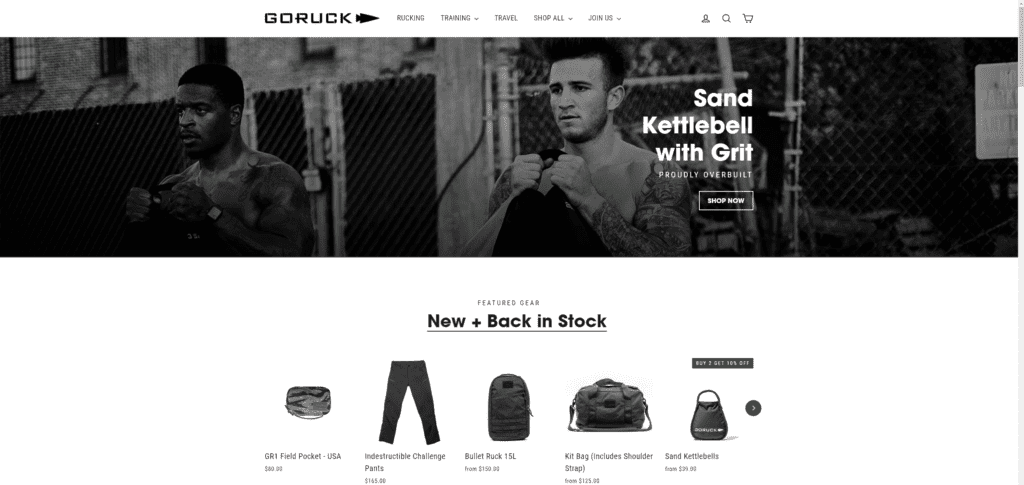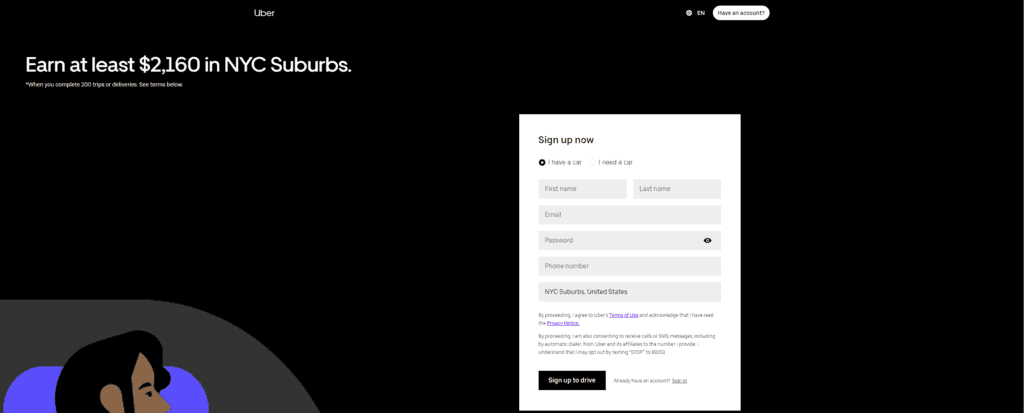
A big misconception amongst some business owners not familiar with the digital marketing space is the difference between a website and a landing page. The confusion comes with the fact that a landing page is part of a website. However, they each play a different role depending on the goal of your marketing campaign.
In this article, we’ll explain the difference between a landing page and a website, explore the use cases for each, and which one you should be using for a marketing campaign.
What is the Difference Between a Landing Page & Website?
What is a website?

A website is a collection of web pages all linked together. Think of it as a central hub. The goal of a website is to serve as a place where a user can come and get more information about whatever problem they are trying to solve.
Several components of a website may include a homepage, product page, contact page, or blog page. The website might have a header menu or a footer menu where the user can find other website links and navigate around the website. But the main idea is to keep the visitor on the website and provide enough information to solve their problem.
What is a Landing Page?

A landing page is a single web page designed to get the visitor to take a call to action. Typically, they are used in marketing campaigns to collect user information. Landing pages will have less distracting information, unlike a website. They’ll be missing elements like a full header and footer menus but instead will have a sign-up form with fields so visitors can enter their information and take advantage of the offer being presented.
How to Choose Between a Landing Page or Website for Your Online Marketing Strategy
Choosing between a landing page and a website for your marketing initiative is pretty black and white. They both have separate use cases. However, to those who are unfamiliar with how customers interact on the internet, there can be some blurred lines that might confuse the execution for each.
The use case for a website
Tool for Eccommerce or Brand Awareness
If you are a company looking to delve into e-commerce or want to increase brand awareness, a website is necessary. 99% of all businesses in 2022 should have a website on the internet.
A website will allow you to give your website visitors deep information about the products or services you offer, learn more about your company story, and most importantly serve as a way for them to purchase or get in touch with you to start a conversation.
On your site, you want to explain to the website visitor why they should spend their hard-earned dollars and use your business as their resource for all their problems. You have to remember that your competition might be on the internet as well. You have to maintain and perhaps offer a better user experience to attract or steal website visitors from your competition.
Your website is basically like an extra sales person that you don’t have to pay. Your website will have plenty of the vital information needed by a visitor to make an educated decision to purchase your product or service.
Resource for Potential Customers
Websites are great for attracting organic search traffic. If you optimize your website for the search engines, doing things like using long-tailed keywords; you will have the opportunity to attract a fair share of the search engine results to your website. Depending on the keyword, that can translate to millions of sessions per month on the website which means more chances at getting sales.
Having a website is also a great opportunity to be a trusted resource for your ideal customer. If you have a blog on your website and consistently publish well-thought-out and helpful articles, your audience will then continue to return to your website to have more of their problems solved hopefully. They will also send your website URL to their friends or other people that may have the same problems thus increasing the amount of referral traffic to your site. The greater amount of traffic you receive to your website, the better the odds that you will strike a sale conversion.
The use case for a landing page
Get Visitors Take Action on Defined Call To Action
The main use case for a landing page is to provide a distraction-free experience of the event to make the user perform a certain action. Most of the time, marketers use landing pages to capture contact information from a website visitor to begin the lead nurturing process.
Landing pages so have a clear and concise call to action and feature benefits of whatever you’re trying to get the user to take action on. People generally don’t go around and submit their information without getting a benefit from it. Usually, the benefit comes in a form of a free courtesy like a downloadable product guide or one-pager – which is called a lead magnet.
It is imperative to have a great-looking landing page not only for the fact that it’ll lead to better conversion metrics but also from the standpoint that it might be your customer’s first impression of your company.
How Decide Which To Use For Your Next Marketing Campaign?
The answer to this question depends on the intention of the campaign you are running.
Lead Generation or Direct Conversion
When using solely a website for a marketing campaign, especially for a lead generation or a customer conversion campaign you may run into a few difficulties.
Firstly, websites tend to be so broad in terms of the information provided on them, that a user clicking in from a campaign might get confused or distracted when navigating through the website and bounce off. For example, if you run a paid media campaign advertising your new inventory of Jeep Cherokees, but on your website, you also have information about Chevy’s, Fords, and Cadillacs, your audience might get distracted and click to learn more about the Ford versus your original call to action which was for them to check out the new inventory of Jeep Cherokees.
With that said, getting people to complete forms is much more difficult when you are sending traffic to a homepage on a website instead of a focused landing page. If you decide to use a form on your website that has a great number of form fields for the user to complete, you might have a low number if any at all, of leads to your website. If you are running campaigns for lead generation, be sure to follow the best practice of using a landing page for those types of campaigns.
Brand Awareness
If you’re looking to make customers more aware of your brand, sending them to a website might be more appropriate. When you send them to your website, the visitor will have an opportunity to click around and find the answers about your brand.
Conclusion:
This is a clear distinction in the use case for landing pages and websites. Websites are better suited for brand awareness and to provide visitors with the most information to hopefully convert to your product or service. Landing pages should be used on marketing campaigns to provide a distraction-free experience in an attempt to make a visitor take a certain call to action like a form sign-up.
About the Author
Andrew McMenamy
A natural problem solver with 6 + years of marketing experience building audiences across numerous verticals. Specialties include content, email, and performance marketing. Andrew graduated from Dowling College with a Bachelor’s in Business Administration in Marketing Management. Follow me on Linkedin and Quora.